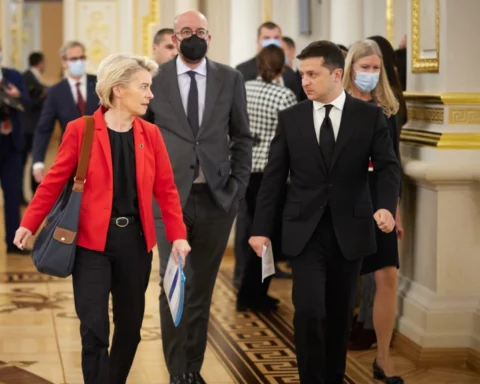Commissioner for Environment, Oceans and Fisheries Virginijus Sinkevičius said: “I stand for zero tolerance on illegal, unreported and unregulated fishing. I am therefore happy to acknowledge Kiribati’s efforts in this joint fight. They have cooperated actively with the Commission and addressed effectively the shortcomings in their fisheries control system, becoming a new ally in delivering healthier oceans and a level playing field for those fishers that play by the rules”.
Illegal, Unreported and Unregulated (IUU) fishing is one of the most serious threats to the sustainable exploitation of living aquatic resources, jeopardising the very foundation of the Common Fisheries Policy (CFP) and the EU’s international efforts to promote better ocean governance. IUU fishing also represents a major hazard to the marine environment, the sustainability of fish stocks and marine biodiversity. Sustainable fisheries in Europe and across the world contribute to achieving the objectives of the European Green Deal and the Biodiversity Strategy for the marine environment.
Under the Illegal, Unreported and Unregulated fishing (IUU) Regulation, the European Commission warned Kiribati in April 2016 that they were not doing enough against IUU fishing. Since then, the country embarked on a series of reforms to bring their fisheries control legislation in line with international law, and is now equipped to deal with illegal fishing effectively. In close cooperation with the European Commission, Kiribati has reviewed its fisheries legal framework and established a sanctioning system acting as a strong deterrent. Furthermore, traceability has been improved throughout the supply chain by strengthening the controls at ports and introducing a new system of catch certification.
Kiribati is an archipelagic nation with one of the most productive tuna fishing grounds in the Pacific, and one of its main sources of income is the revenue collected by giving access to its waters to distant fishing nations. In this regard, Kiribati has improved cooperation with some of the flag states that operate in its waters and will continue working towards this objective.
Background
The EU is the world’s biggest importer of fisheries products. Fighting illegal fishing is part of the EU’s commitment to ensure sustainable use of the sea and its resources, under the Common Fisheries Policy. It is also an important pillar in the EU’s ambition to install better international governance of our oceans.
The global value of illegal, unreported and unregulated (IUU) fishing is estimated at 10-20 billion euros per year. Between 11 and 26 million tonnes of fish are caught illegally every year, corresponding to at least 15% of world catches.
The Commission’s Decision is based on the EU’s ‘IUU Regulation’, which entered into force in 2010. This key instrument in the fight against IUU fishing is the catch certification scheme that ensures that only fisheries products that have been certified as legal by the flag State can access the EU market. While failure to cooperate in the framework of the dialogue can lead to an import ban for fisheries products (a so-called “red card”), the IUU dialogues are based on cooperation and support and are an important step in tackling IUU fishing, with trade prohibition only a last resort measure.






